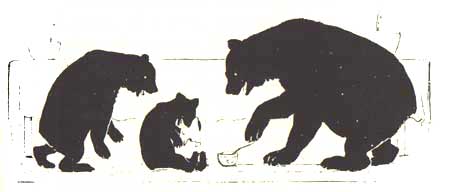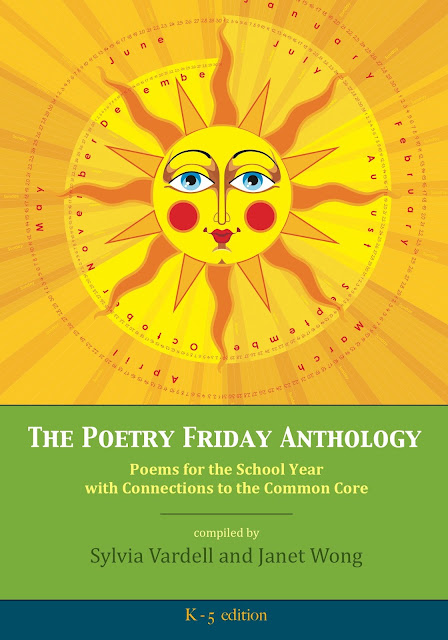new posts in all blogs
Viewing Blog: Crackles of Speech, Most Recent at Top
Results 26 - 50 of 148
children's/ya books, comics, animation, poetry, prose, new media, etc.
Statistics for Crackles of Speech
Number of Readers that added this blog to their MyJacketFlap:
City of Birds
No sooner had the kestrel over Boston Common fell,
So fiercely like a bomb it made a jogger twist away,
Than toddlers strapped in double-strollers, twins, began to yell,
"Bird! A birdy! Mummy! Daddy! Look! A bird!" for they
Had seen Make Way for Ducklings statues, paddle-boated swans,
Tossed fat pigeons cookie crumbs on Public Garden lawns,
And there the fallen falcon stood, an unexploded shell,
Atop a cabbie’s orange roof—a chipmunk for his prey
Was hooked and dead already—daring any to dispel
That battery of silence over all of us held sway.
©2014 Steven Withrow, all rights reservedNote: I write a lot of "poet's poems" -- experiments with sound and syntax. Lately I've been determined to write poems that use the techniques I've been practicing yet have a quality of wholeness and openness that I hope will speak to an audience. "City of Birds" is this sort of poem. It was an enjoyable challenge writing in fourteeners (seven-beat lines), limiting my rhyme scheme, and shaping the entire thing as a single sentence.
Morning Walk
Snow fell, fell all night.
Now, no bird can tell
its perch. Each pine
is papered white
as birch. Out ahead
on our path, a cloud
of frozen vapor cast
up by a gust, itself
a snow-shape, hides
our whole woodpile
and falls a frigid dust
as snow fell, all night.
©2014 Steven Withrow, all rights reserved
<!--[if gte mso 9]>
Normal 0 false false false EN-US X-NONE X-NONE MicrosoftInternetExplorer4 <![endif]-->
Snapping Turtle
An animal of minimal means,
He owes no frog,
He holds no debt.
For travel, he’s a mobile home.
For music, he’s a metronome.
He’s blissful in a bog
And wet.
Counting time in a snarl of greens,
He cara-paces,
Ages slow.
In summer, he’s too somber to snap.
In winter, sleeps in a muddy gap.
His blood thinks,
Enough?
His dream says,
No.
© 2013 Steven Withrow, all rights reserved
A note of scientific interest: My daughter and I recently spent time with a biologist from the Audubon Society of Rhode Island and learned a good deal about our local snapping turtles. While snappers live about 50 years at the extreme—nowhere near as long as the Galápagos tortoise—they hibernate by burying themselves in mud and leaves and by slowing their bodies so that their hearts beat once every few minutes. They don't need much oxygen in this state, absorbing it from pond water through specialized skin cells just inside the tail opening. In essence, they "breathe" through their tails. Freshwater turtles can stay like this for two or three months! The more details like this I learn about a subject, the more I want to include in a poem. My ear is the judge, as I always strive toward musicality. If a word doesn't sound right to me, if it doesn't harmonize with (or counterpoint) every other word, then it's best left out, or kept in prose.
 |
| Illustration by John D. Batten, 1890 |
An experiment with terza rima and a favorite fairy tale. In playing with the verse form, I’ve attempted to approach “The Story of the Three Bears” much as a contemporary illustrator such as Lisbeth Zwerger might interpret this tale. I’m more focused on the mystery and surreality inherent in this tale than on its surface plot or details. Rhythm and syllable sound are paramount to me, as color and shade are for many artists. Words might slip their comfortable meanings, and images might grow outsized. There are stranger, darker antecedents and variants than the tame bedime story I was introduced to as a child where the safe ending seemed imposed rather than organic. Robert Southey's version stars a foul-mouthed old woman; Charles Dickens refers to hobgoblins rather than bears; and John D. Batten draws a fox called Scrapefoot who visits a bears' castle in the woods. Curiouser and curiouser...
Chain Rhyme for Goldilocks
She reached the cottage with the evening light,
And from the eaves a nesting swallow spoke:
“Too hard, too hot, too cold, too soft, just right.”
The house exhausted wafts of chimney smoke
That brought a scent of porridge to her nose.
She dropped behind her sodden walking cloak
And kicked her muddied sandals from her toes.
She stepped across the threshold in a swoon.
The swallow whistled, “Watch out where she goes!”
Inside, a kitchen hearth, a cauldron spoon.
No chairs, no bowls, no occupants in sight.
Swallow whispered: “Someone’s coming soon.”
She’s long past listening, lulling now it’s night:
“Too hard, too hot, too cold, too soft, just right.”
© 2013 Steven Withrow, all rights reserved
Recently, Lesley, Marin, and I visited Crescent Park Carousel in Riverside, Rhode Island. It was hand-carved by Charles Looff in 1895 and is still revolving with joy. My poem is modeled in structure after Richard Wilbur’s “June Light”:
At Crescent Park Carousel
Your choice, in passing by a bridled face
Belonging to a stationary roan,
Was pitched to pick a jumper, she of bone-
White shoulders, a statue of a steeplechase
Which you had claimed as yours, and yours alone.
Then your grip tightened on that golden pole
Some master carver set within your horse
For permanent ascent. How close our course
Circled, and how constricted our control,
Meant little locked in radiating force.
And you leaned out—if I could only sing
Over the Wurlitzer, I might still be
Accordant with that same calliope—
To grab the brassy medal of a ring.
© 2013 Steven Withrow, all rights reserved
Cat in the Yard
The stub-tailed cat
Is fuzzed up fat
As an arctic seal
Past the spoky wheel
Of a child’s bike.
She doesn’t like
To oversleep
With errands to keep.
She rolls to her paws
Then whets her claws
Sharp against
A garden fence.
Some chickadees
Politely freeze
And hold their beaks.
No squirrel squeaks
Or gives her lip.
She cracks a whip
But lightly, firm
She’ll last her term
As feline queen.
Still, she mustn’t be seen
Yielding ground
To the neighbor’s hound.
© 2013 Steven Withrow, all rights reserved
Once You’ve Wandered from Under Your Yellow Cabana
your canopy made
to tender shade
meander here
and stand stock-still,
grander than
thunder in winter,
a span beyond
your slender reach
properly to ponder—
watch the sea-spray
crash the strand—
till, in candor,
you blunder
toward a bored
gelato vendor,
numbly as your hungry
tongue commands,
as goose unmans
her gander,
come to squander
summer’s wonders,
cash in hand.
© 2013 Steven Withrow, all rights reserved
I Am the Seed
I am the seed only earthworms have seen
through the sensitive cells in their skin.
I want to be grass, and I want to be green.
But ending outright is no way to begin
for a seed, or a worm, or a man:
one owns up to a loss, and earns any win.
I am the shell that entraps as it can
and it must―that’s the path that it’s on.
I am the gulf that no girders will span.
I am also escapist―I’m here, then I’m gone.
From the shell, from the cell, I will run.
I am the sleeper who rises at dawn
to greet and exalt inexhaustible sun
for its labors―a matchless machine,
that once it starts up, is never outdone.
I am the seed, and I weave what I mean.
I want to be grass, and I want to be green.
© 2013 Steven Withrow, all rights reserved
First Saddle Sonnet
This tall man, hard from handling heavy tack,
Hitches his skittish filly to a post,
Lifts curry comb to groom her bristled back
In gentle circle gestures, like a ghost
Easing an armored steed before a battle.
Once he has her breathing more at peace,
He places on a weathered western saddle
Then tugs a rough cinch tight within the crease
Between her shoulders and her ribs. He taps
Her neck and smooths out tangles in her mane,
Guiding bridle, bit, and leather straps
Over her face. She snaps. He grips a rein,
But slackly, and she softens. Slow to force,
He knows what harm’s in harnessing a horse.
© 2013 Steven Withrow, all rights reserved
Details from John Singer Sargent’s A Boating Party
(1889, oil on canvas, Rhode Island School of Design Museum)
Portrait commissions left him flush enough
To rent an English house for holidayWhere River Avon glides, the side notes say,
Giving him time to make a pencil rough
He’d later trace to canvas, leaving holes
To weave a tapestry of willow trees
For background. Jotted autumn colours freeze
A figure fronted by two punting poles.
Violet, his sister, caped in fur, far right,
Leans on her forearm, dressed in green chapeau.
A second lady, standing, casts below
Her corseted reflection, balanced, white
As her husband’s lanky trouser leg that bends
To hook the flat red punt to his canoe.
This idler is the painter Paul Helleu,
Who knew what ends in grace begins with friends.
Poem © 2013 Steven Withrow, all rights reserved
Pages 941-947: Cedar Waxwing (Bombycilla cedrorum)
Birdwatchers’ guidebooks are chock-full of facts.
They’ll tell you that waxwings have wings not of wax
But of soft silky plumes made of hooklets and barbs
When glimpsed from a distance resemble the garbs
Of Napoleon’s soldiers, bedecked chevaliersWho dive from high perches when a rival appears.
They’re solemn as churches, these birders’ reviews
Of each piece of forest that passes for news.
They’re not for cycloptics who scoff with derision
At birdwatching toffs with binocular vision.
They’re binders of questions no amateur’d ask:
What face has the waxwing? A rakish black mask.
A diet of berries and fruit—is that right?
In summer, some waxwings catch bugs in midflight.
You’ll learn waxwings whistle, both females and males.
And if waxwings were wax, they’d have candles for tails.
© 2013 Steven Withrow, all rights reserved
Spring Cardinal
She rarely composes
verse. Pending motherhood
and constant foraging necessitate
close focus. However, encumbrances unfavorable
to shaping poetry monopolize
her routines
so fully
she cannot imagine
hours squandered figuring lineation
or finding metrical felicities.
Her only redemption,
though meager,
is noting likenesses, haphazardly.
Not really metaphors.
Just scattered images, analogies
of little consequence:
her partner’s
red feathers
like berries ripening,
her hatchlings
all sleeping noiselessly
as rabbits.
©2013 Steven Withrow, all rights reserved
[This poem is an experiment with rhopalic verse, lines in which each successive word has one syllable more than the one before it. Thanks to Avis Harley and Tricia Stohr-Hunt for the inspiration.]
THE LIBRARY STEPS
By Steven Withrow
To reach the books we had to leap the lion.
Sculpted stone in place of fierce flesh,
But ferocious enough to those of us
Who paused to tooth the toothless king
And pedicured his deadly toes
With the flat files of our stares.
We frogged him, one by one,
Palms pommeling his brow,
Split legs missing his maw
By inches. When all had passed,
None looked back. We had won.
Indoors, we stalked the fiction stacks,
Dreaming we leapt his head again,
Stone tongue tasting our fingers.
© 2013 Steven Withrow, all rights reserved
Small birds learn early
the best way to burgle a seed bin
and swallow whole the hard husks,
and the quickest route back
to the barn beams is to arrow past
the sparrowhawk and the farmer’s cat.
But the wood thrush, she’s
an insect-eater, and her partner’s
a singular singer. No music school
could teach him his bup, bup, bup
that bubbles up when threats appear
or his clear and forest-filling trill.
The chicks of thrushes peck
from pale blue speckled eggs,
and test their wings against the air
at two weeks old, their tail feathers
bent out behind them, like fingers
clutching updrafts as a boy holds a book.
© 2013 Steven Withrow, all rights reserved
It's likely not obvious, but among other things, this poem is an attempt, by differing the density of stressed syllables, to build tension between the irregular cadences of the sentences and the iambic tetrameter pattern that underlies the lines. To illustrate, here's a quickly jotted *version* of the poem in perfect four-stress lines:
I am a devoted reader of the poems of the late, great Valerie Worth, and though I lack her mastery and grace, I often try to write "small poems" of my own, attempting to give an extraordinary level of imaginative focus to an ordinary object.
Rocking ChairBy Steven WithrowNo easy chair,This seat befitsA sea captain,A rolling throneFor sittingThrough catnaps, Lordly and rapt,Stirred by swells And the blowsOf storms,Adoze, yetAll-aware.A fine recliner,It doubles As a rockerKnocked togetherFor landlubbersSettled like Ships dockedOn becalmed lapsOf mothers, halfKeeping time, Half asleep.© 2013 Steven Withrow, all rights reserved
Blizzard CountryBy Steven Withrow
A white place you’ve come to,
After a midnight’s freeze.
Rest your head on a hedgerow.
Sleep where you please.
Throw on a warmth’s worth,
A lamby balm of snow.
Your hammock a hummock of earth,
A hillock your pillow.
The cold begins to close.
The wood’s edge fades by degrees.
Your shadow now a hollow
Under the ghosted trees.
© 2013 Steven Withrow, all rights reserved
Taunton River in December
By Steven Withrow
The geese are eating day-old bread
From the children’s winter-mittened fists.
These ganders, intermittent guests,
If anything, are overfed,
For it’s the ducks we’ve come to stuff
With crusts of dough. In rills of slop
That spill above the river top,
Grass blades sleeted with feather-fluff
Skitter like mice beneath our boots
Beside the begging waterfowls
Which trail us, intimate as owls,
Nipping the tails of our snowsuits.
Greenhead mallard and his brown
And unrelenting hen advance
Orange feet, a feasting dance
One only meets this far from town.
© 2012 Steven Withrow, all rights reserved
Wood Thrush
By Steven Withrow
Small birds learn early
the best way to burgle a seed bin
and swallow whole the hard husks,
and the quickest route back
to the barn beams to arrow past
the sparrowhawk and the farmer’s cat.
But the wood thrush, she’s
an insect-eater, and her partner’s
a singular singer. No music school
could teach him his bup, bup, bup
that bubbles up when threats appear
or his clear and forest-filling trill.
The chicks of thrushes peck
from pale blue speckled eggs,
and test their wings against the air
at two weeks old, their tail feathers
bent out behind them, like fingers
clutching updrafts as a boy holds a book.
© 2012 Steven Withrow, all rights reserved
Toad in the Road TankaBy Steven WithrowAlways there’s a toadspoiling our velocities,holding its slow pace.Why must it insist itself into the weave of all things?
Sylvia Vardell and Janet Wong have released an amazing anthology of poems and classroom activities for grades K-5, and my poem "Green Sea Turtle" is part of the fifth-grade section.
J. Patrick Lewis chose my "Moray Eel" and "Mussel" for this beautiful collection of poems and photographs. It's an honor to be published alongside many of the greatest poets for children (and for anyone) of all time: Robert Frost, Emily Dickinson, David McCord, Valerie Worth, X.J. Kennedy, Carl Sandburg...
An experiment with a new form called a trimeric, invented by Dr. Charles A. Stone:
How to Play Bass Guitar
By Steven Withrow
Grip with both hands and throttle its throat,
this obstinate and bell-bottomed bird
asleep in your lap, ostrich-brained:
there’s nothing here that’s musical.
This obstinate and bell-bottomed bird,
begin to stroke its fattest string
and hear it bare its baritone.
Asleep in your lap, ostrich-brained,
it thrums a slow and walking blues,
but don’t confuse your fingers yet.
There’s nothing here that’s musical.
Listen for the catch in its breathing
in other birds would pass for singing.
Copyright 2012 Steven Withrow, all rights reserved
A little end-of-summer meditation I thought I'd share:
None Unhurried, None at Rest
By Steven Withrow
Nothing milder than the rabbit,
alone with his lunch of chicory,
but never, as he stiffens, alone
a long stretch, for even the warmth
that heavies the August wind
hastens him on with hawk-flight, cat-calls.
2 Comments on POEM: None Unhurried, None at Rest, last added: 8/24/2012
CORMORANT
By Steven Withrow
Blotching the bay’s
swatch of swell
is an overturned L
that compels your gaze,
1 Comments on POEM: Cormorant, last added: 6/26/2012
Written while anticipating the first heat wave of 2012:
Once You’ve Wandered from Under Your Yellow Cabana
or beach umbrella—
your canopy made
to tender shade
or hinder sun
from sand—
meander here
and stand stock-still,
bewildered
by a splendor
grander than
thunder in winter,
a span beyond
your slender reach
properly to ponder—
watch the sea-spray
crash the strand—
till, in candor,
you will blunder
toward a bored
gelato vendor,
numbly as your hungry
tongue commands,
as goose unmans
her gander,
come to squander
summer’s wonders,
cash in hand.
© 2012 Steven Withrow, all rights reserved
One of my first pets was a cat named Muffin who lived 22 years, most of them outdoors. I'm happy to remember her in this poem.
View Next 25 Posts



























I do love the "mystery and surreality" of those swallows...
Thanks for giving us a glimpse into your process! I just had to stop and read several times, and aloud.
Violet N.
I was sitting right next to the swallows, watching and knowing better. Thanks for letting us in on the form and process. And thanks for joining in the roundup today.